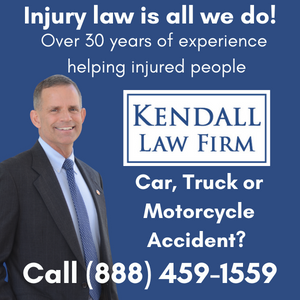Nursing home abuse and neglect in Charlottesville Virginia
Nursing Home Abuse and Neglect Lawsuits in Charlottesville, Virginia: Legal Guide for Victims and Families
Nursing home abuse and neglect in Charlottesville, Virginia represents a serious violation of both resident rights and state care facility regulations. This form of misconduct can manifest in various ways, including physical abuse, emotional mistreatment, financial exploitation, neglect of basic needs, and inadequate medical care. The consequences can be severe, ranging from psychological trauma and preventable falls to medication errors and life-threatening bedsores. When families discover their loved ones have suffered harm in a nursing facility, they may pursue personal injury claims against the responsible parties, which can include the facility itself, individual staff members, or corporate ownership groups. Common warning signs that may indicate abuse include unexplained injuries, sudden behavioral changes, poor hygiene, malnutrition, and unauthorized financial transactions. Understanding the legal framework surrounding nursing home abuse cases is crucial for families seeking justice and compensation for their loved ones.
Legal Rights and Considerations: Virginia nursing homes must comply with both federal regulations and the Virginia Administrative Code (12VAC5-371). Victims and their families generally have two years from the discovery of abuse to file a personal injury lawsuit under Virginia's statute of limitations (Code of Virginia § 8.01-243). Cases may involve multiple types of insurance, including the facility's professional liability coverage and individual staff members' personal liability insurance. Compensation can cover medical expenses, pain and suffering, relocation costs, and in cases of extreme negligence, punitive damages. Virginia recognizes both direct liability for the facility's negligence and vicarious liability for employee actions. In cases involving death, families may pursue wrongful death claims under Virginia Code § 8.01-50. An experienced Charlottesville nursing home abuse attorney will handle all aspects of the legal claim.
Here are ten key legal terms commonly used in nursing home abuse claims:
- Negligent Care: Failure to provide the accepted standard of care and attention required to maintain a resident's health and safety, such as not responding to call buttons or missing medication schedules.
- Duty of Care: The legal obligation nursing homes have to provide reasonable care, protection, and services to their residents according to professional standards and state regulations.
- Informed Consent: The legal requirement that nursing home staff must obtain permission from residents or their legal representatives before administering treatments or making significant care decisions.
- Elder Abuse: Any intentional or negligent act by a caregiver that causes harm or serious risk of harm to a vulnerable adult, including physical abuse, emotional abuse, sexual abuse, exploitation, neglect, and abandonment.
- Vicarious Liability: A legal doctrine that holds nursing homes responsible for the negligent actions of their employees while performing job duties, even if facility management wasn't directly involved.
- Wrongful Death: A legal claim that arises when a resident dies due to the nursing home's negligence or intentional harmful actions, allowing surviving family members to seek compensation.
- Breach of Contract: A legal claim based on the facility's failure to provide the level of care and services promised in the admission agreement or resident care contract.
- Punitive Damages: Additional monetary compensation awarded in cases where the nursing home's conduct was particularly egregious, intended to punish the wrongdoer and deter similar behavior.
- Pressure Ulcers (also called bedsores or decubitus ulcers): A medical condition often cited in nursing home negligence cases, indicating failure to regularly reposition immobile residents or maintain proper hygiene.
- Power of Attorney: A legal document designating someone to make healthcare and/or financial decisions for a nursing home resident who becomes incapacitated, often crucial in abuse cases.
Related Resources:
Local Courts:
- Charlottesville Circuit Court
- Albemarle County Circuit Court
- Virginia Western District Federal Court (for federal cases)
Support Services:
- Virginia Department of Aging and Rehabilitative Services
- Virginia Long-Term Care Ombudsman Program
- Jefferson Area Board for Aging (JABA)
- Piedmont Victims Services Network
Regulatory Resources:
- Virginia Department of Health - Office of Licensure and Certification
- Virginia Adult Protective Services
- Centers for Medicare & Medicaid Services Nursing Home Compare
- National Center on Elder Abuse
Return to the Charlottesville accident information page
Most recent accident reports
- ‹ previous
- Page 2
- next ›


